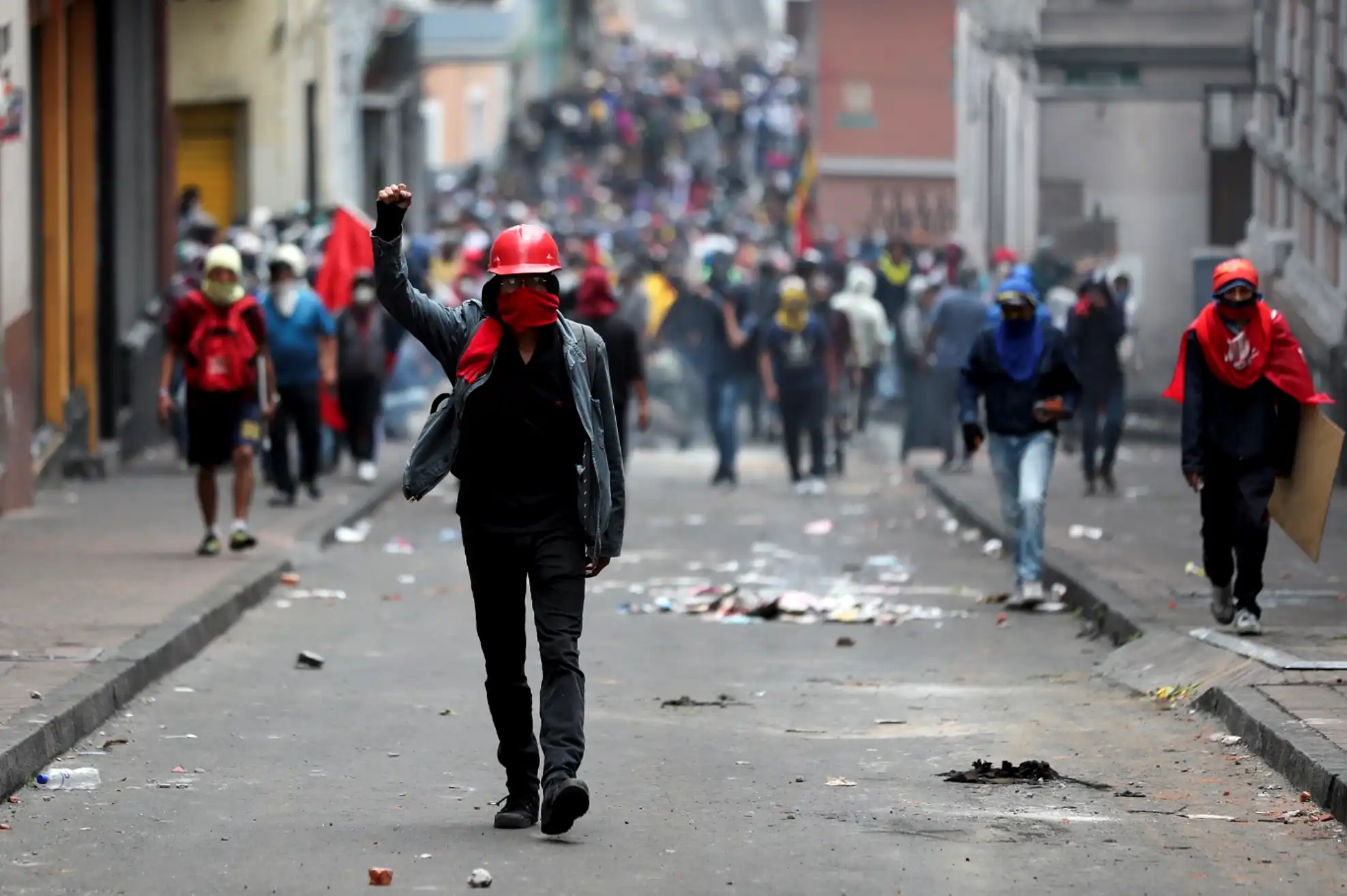
Recently, an intense social mobilization has been unleashed in a relatively unforeseen manner in many parts of the world. Nothing new, except the forms and contents of this new social protest. In cities and countries around the world, massive mobilizations have taken to the streets in anger, often violently. But what is striking about these mobilizations is that they are resistant and permanent. They begin and give no sign of when or how they will end. We do not even know if they will end.
The first hypothesis to understand this social rage is that it is a format of mobilization and protest that is political in itself, but it is not directed to politics. That is to say, it does not have and does not pretend to have expectations that traditional and representative politics will account for, administer, manage or satisfy these demands, this discontent. Nothing is asked of institutional political systems because they are not believed in. Moreover, they are part of the problem, not of the solution.
That is the reason for the anger, the violence, and the alleged anarchy. The discontent is directed at the system, not at one of its parts. Therefore, there is no possible solution within the system. Does this mean that it is revolutionary? Yes and no. Yes, insofar as it wants to go to the heart of the matter, to the structural change in the political ways of managing life. No, because it does not propose a revolutionary action, at least in the classical terms, and, even less, it does not constitute a revolutionary subject.
For vast social sectors, made up of age, gender, ethnic groups, classes, cultures, religions, preferences, perceptions or sexual self-perceptions, the political-society relationship, typical of the second modernity, as a process in which the individualization of society reaches its maximum expression is known, has come to an end. It does not question them. It does not question them or dialogue with their imaginary, experiences and expectations of life.
The second thesis, in my opinion, is fundamental because it is foundational. Social identities no longer seem to configure individualities (objectivities plus subjectivities). It is the individualities (preferences for forms of life) that give shape to social collectives on that same basis, unstable, unexpected, and uncertain. Between the first and the second hypothesis lies the common thread for understanding the social question and, therefore, current politics.
But it is also necessary to define the fuel of this anger, the expression of discontent, the very essence that makes the manifestation of rage uncontainable. There is no mobilization without an ultimate reason, a reason that contains in its various forms of expression the discontent of the time.
In this sense, the third hypothesis is that the essential force driving the expression of contemporary rage is an uncontainable drive for freedom. It is not the philosophical freedom of natural law; it is not the political freedom of the historical development of democracy. It is the violent resurgence of the need for one’s own freedom to show the preferred, non-negotiable, uncontainable forms of life. It is the freedom of needing and being able to make visible meanings metaphorically in forms and expressions of life from which we can continue talking about what we have been talking about for centuries: justice, equality, and rights.
A great social discontent emerges. It is anger, and that is why it persists and becomes violent. One of its novelties is that it is not directed at the way in which politics is used to resolve protests, that is, for or against whoever managed the conflicts. It would seem that this discontent is directed at questioning why someone/something – institutional politics – has to manage and resolve conflicts. It is directed at the legitimacy of contemporary institutional politics to speak on behalf of social actors and people. “Don’t speak for us anymore. You always get it wrong.”
Contemporary sociology has a new, broad field, necessary to try to decode the new forms of the social. Contemporary politics has the obligation to look at society, its new expressions, its new forms of organization and collective action, the constitution of demands, new subjectivities, and perceptions of the duty to be of human life in society.
It seems obvious to say that politics must look at society and its movements. The issue is that much politics is made and developed in itself, without looking at the social or, even worse, thinking that society will continue to develop in an immutable way.
Translated from Spanish by Janaína Ruviaro da Silva


